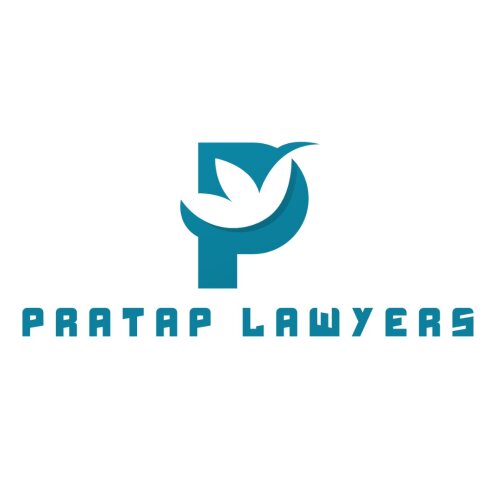Best Nonprofit & Charitable Organizations Lawyers in Fiji
Share your needs with us, get contacted by law firms.
Free. Takes 2 min.
Or refine your search by selecting a city:
List of the best lawyers in Fiji
About Nonprofit & Charitable Organizations Law in Fiji
Fiji is home to a vibrant nonprofit sector which plays an essential role in the country’s social and economic development. Nonprofit and charitable organizations in Fiji are primarily governed by the Charitable Trusts Act, which outlines the legal framework for creating and operating these entities. These organizations serve various purposes, including education, religion, health, and community development. Legal compliance is essential for ensuring these organizations operate effectively and receive necessary benefits like tax exemptions.
Why You May Need a Lawyer
Legal assistance is often crucial for nonprofits and charitable organizations in Fiji in several scenarios:
- Formation and Registration: Ensuring legal compliance from the outset can avoid problems down the line.
- Governance and Compliance: Legal guidance can help ensure board governance and regulatory compliance.
- Tax Exemptions: Legal expertise may be necessary to apply for and maintain tax-exempt status.
- Employment Issues: Understanding employment laws is crucial for nonprofit staff management.
- Contract and Funding Agreements: Legal review can help protect organizational interests when entering into contracts or agreements.
- Dissolution: Guidance on the proper process for dissolving an organization can prevent legal and financial complications.
Local Laws Overview
Several key aspects of local laws are pertinent to nonprofits and charitable organizations in Fiji:
- Charitable Trusts Act: The primary legislative framework for registering and operating charitable organizations.
- Income Tax Act: Addresses the tax obligations and exemptions available to nonprofit entities.
- Employment Relations Act: Outlines employment standards affecting staff and volunteer management.
- Fiduciary Duties: Board members are expected to understand their legal responsibilities under Fijian law.
- Anti-Money Laundering Requirements: Nonprofits must ensure compliance with legislation to prevent misuse of funds.
Frequently Asked Questions
What is the process to register a nonprofit organization in Fiji?
The process involves reserving a name with the Registrar of Titles, drafting a trust deed, and submitting the necessary forms along with the fee to establish a charitable trust under the Charitable Trusts Act.
What legal structure is most common for nonprofits in Fiji?
The most common legal structure for nonprofits in Fiji is a charitable trust, governed by the Charitable Trusts Act.
Are nonprofits in Fiji tax-exempt?
Yes, nonprofits can apply for tax-exempt status under the Income Tax Act, provided they meet certain conditions relating to their charitable purposes.
What responsibilities do the board members of a nonprofit have?
Board members must adhere to fiduciary duties, including the duty of care, loyalty, and obedience to the organization's mission.
How can a nonprofit ensure it is compliant with local laws?
Engaging with a legal advisor familiar with Fijian nonprofit laws can assist in understanding compliance requirements and implementing proper governance practices.
What funding sources are available for nonprofits in Fiji?
Nonprofits can seek funding from government grants, donor contributions, fundraising activities, and international aid organizations.
Can a nonprofit engage in political activities?
Nonprofits in Fiji need to be cautious about engaging in political activities, as this can affect their charitable status and may face legal restrictions.
What is required for a nonprofit to employ staff?
Nonprofits must comply with the Employment Relations Act, providing fair terms, working conditions, and ensuring compliance with all labor laws.
How do nonprofits in Fiji handle financial reporting?
Nonprofits are generally required to maintain accurate financial records and may need to submit reports to regulatory bodies or stakeholders.
What should a nonprofit do if it needs to dissolve?
Legal guidance is recommended to ensure the proper distribution of assets and compliance with dissolution regulations under the Charitable Trusts Act.
Additional Resources
If you require further assistance, consider reaching out to the following resources:
- Office of the Registrar of Trusts: The primary government body for nonprofit registration and compliance.
- Fiji Revenue & Customs Service: For guidance on tax exemptions and obligations.
- Pacific Islands Association of Non-Governmental Organizations (PIANGO): Offers support and networking opportunities for nonprofits.
- Legal Practitioners in Fiji: Specialized lawyers can provide comprehensive legal services for nonprofit matters.
Next Steps
If you're seeking legal assistance in the nonprofit and charitable organization sector, consider the following steps:
- Identify Legal Needs: Determine the specific legal issues or questions you have regarding your organization.
- Consult with Legal Experts: Engage with a lawyer experienced in Fiji’s nonprofit sector to receive accurate and relevant advice.
- Gather Necessary Documentation: Prepare all relevant documents, such as your organization’s constitution, financial records, and any correspondence with regulatory bodies.
- Stay Informed: Keep up-to-date with changes in laws and regulations affecting nonprofits in Fiji.
Lawzana helps you find the best lawyers and law firms in Fiji through a curated and pre-screened list of qualified legal professionals. Our platform offers rankings and detailed profiles of attorneys and law firms, allowing you to compare based on practice areas, including Nonprofit & Charitable Organizations, experience, and client feedback.
Each profile includes a description of the firm's areas of practice, client reviews, team members and partners, year of establishment, spoken languages, office locations, contact information, social media presence, and any published articles or resources. Most firms on our platform speak English and are experienced in both local and international legal matters.
Get a quote from top-rated law firms in Fiji — quickly, securely, and without unnecessary hassle.
Disclaimer:
The information provided on this page is for general informational purposes only and does not constitute legal advice. While we strive to ensure the accuracy and relevance of the content, legal information may change over time, and interpretations of the law can vary. You should always consult with a qualified legal professional for advice specific to your situation.
We disclaim all liability for actions taken or not taken based on the content of this page. If you believe any information is incorrect or outdated, please contact us, and we will review and update it where appropriate.
Browse nonprofit & charitable organizations law firms by city in Fiji
Refine your search by selecting a city.
















